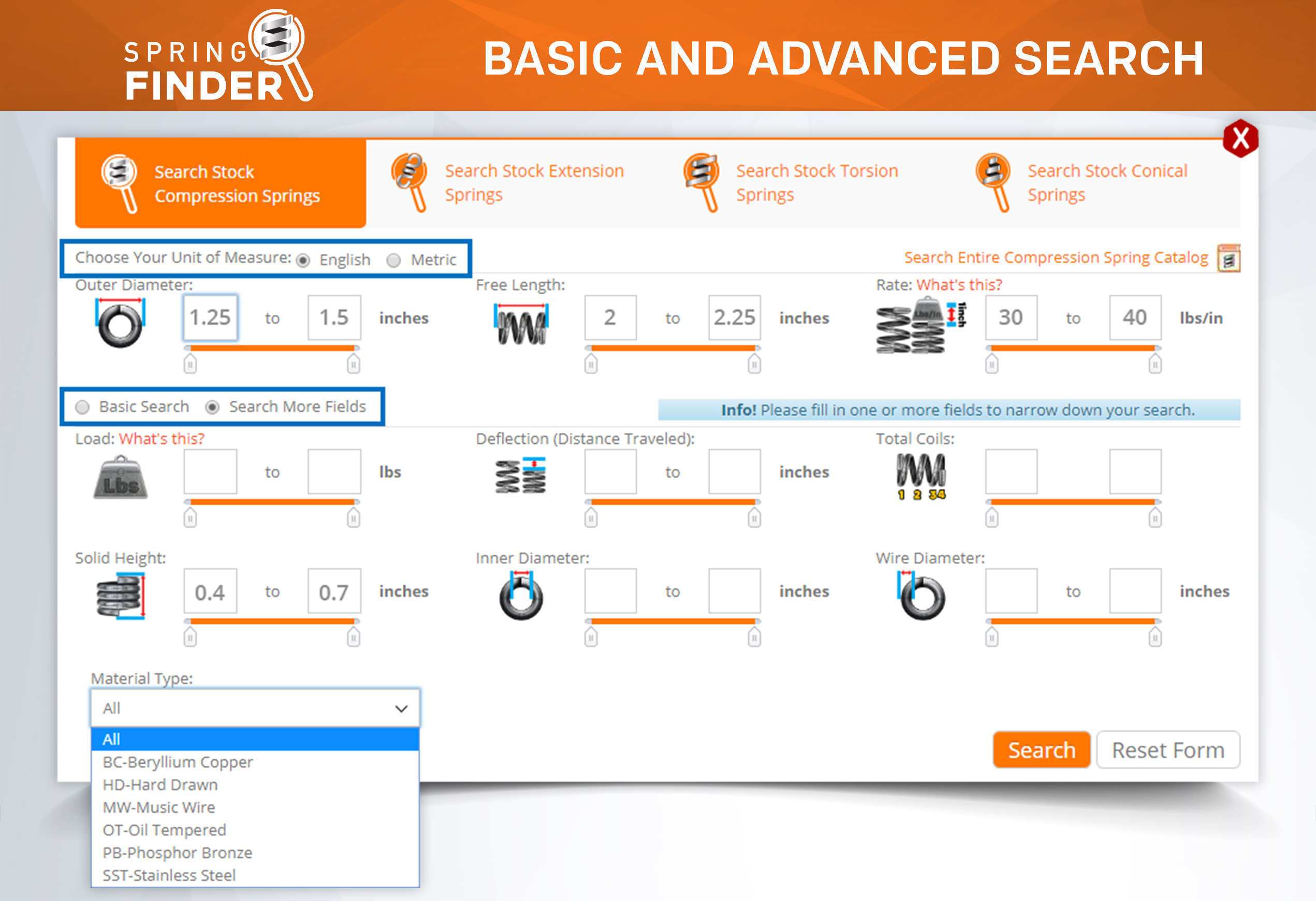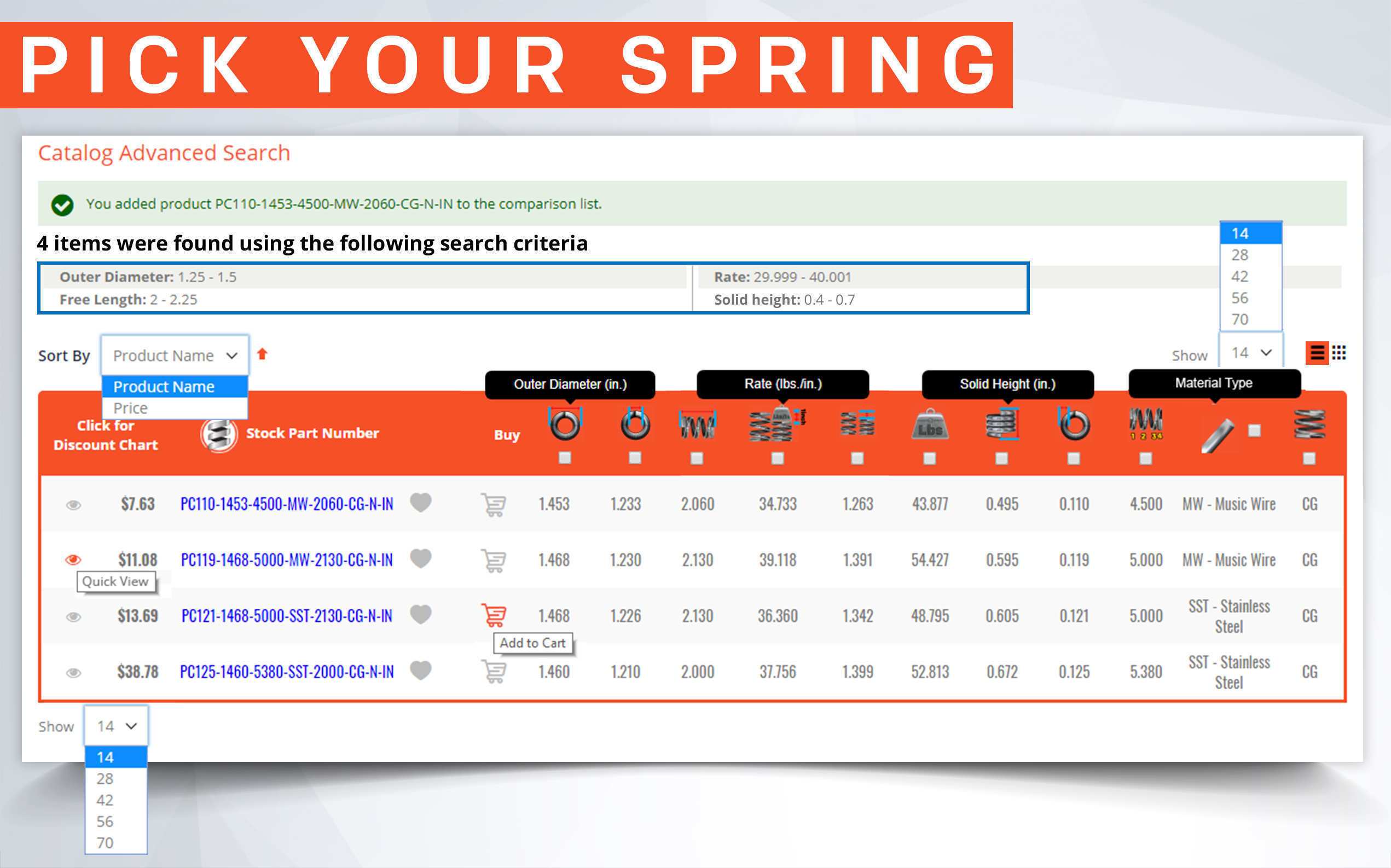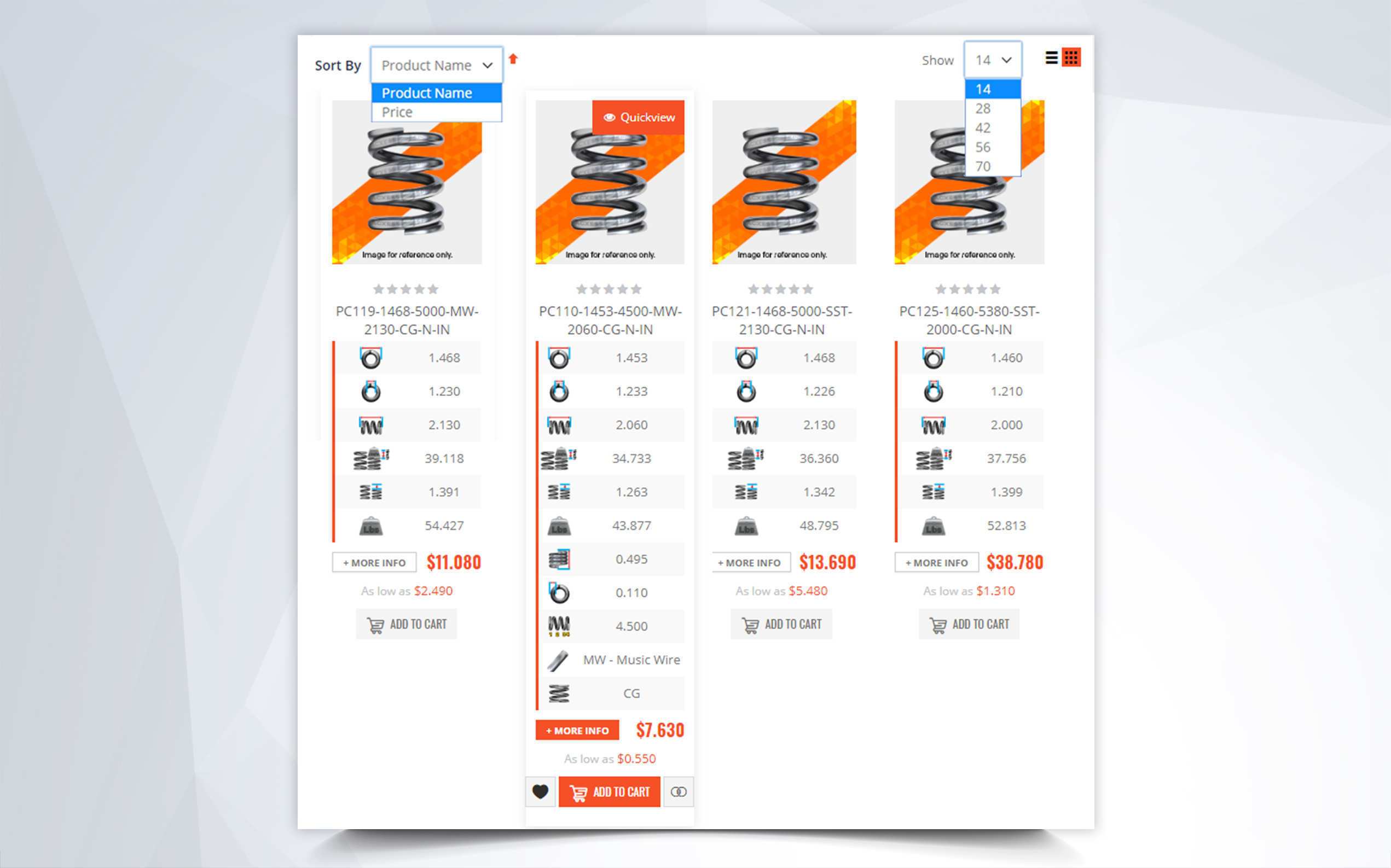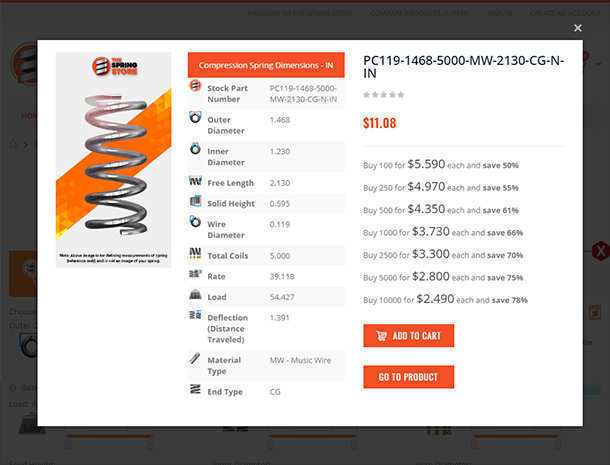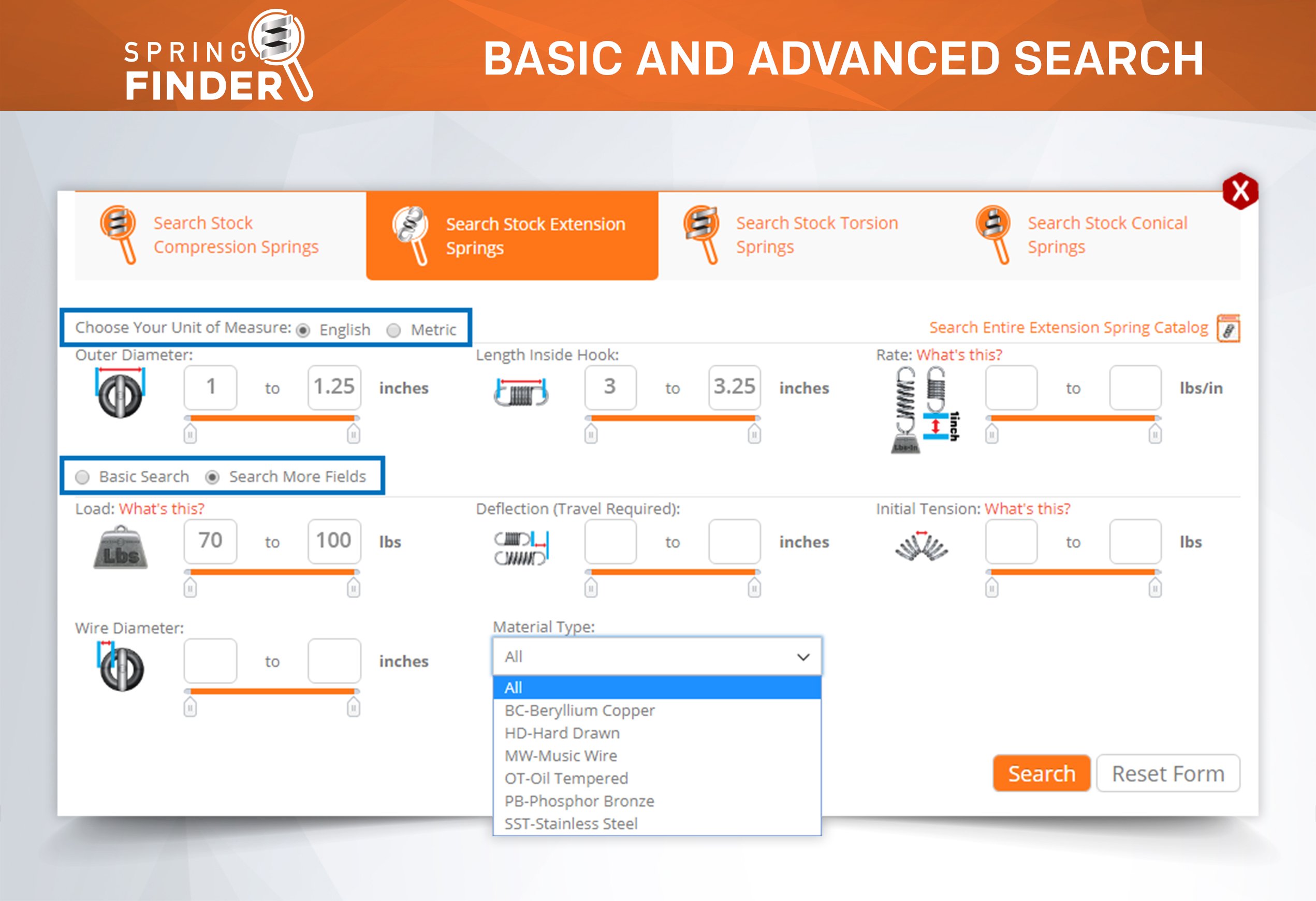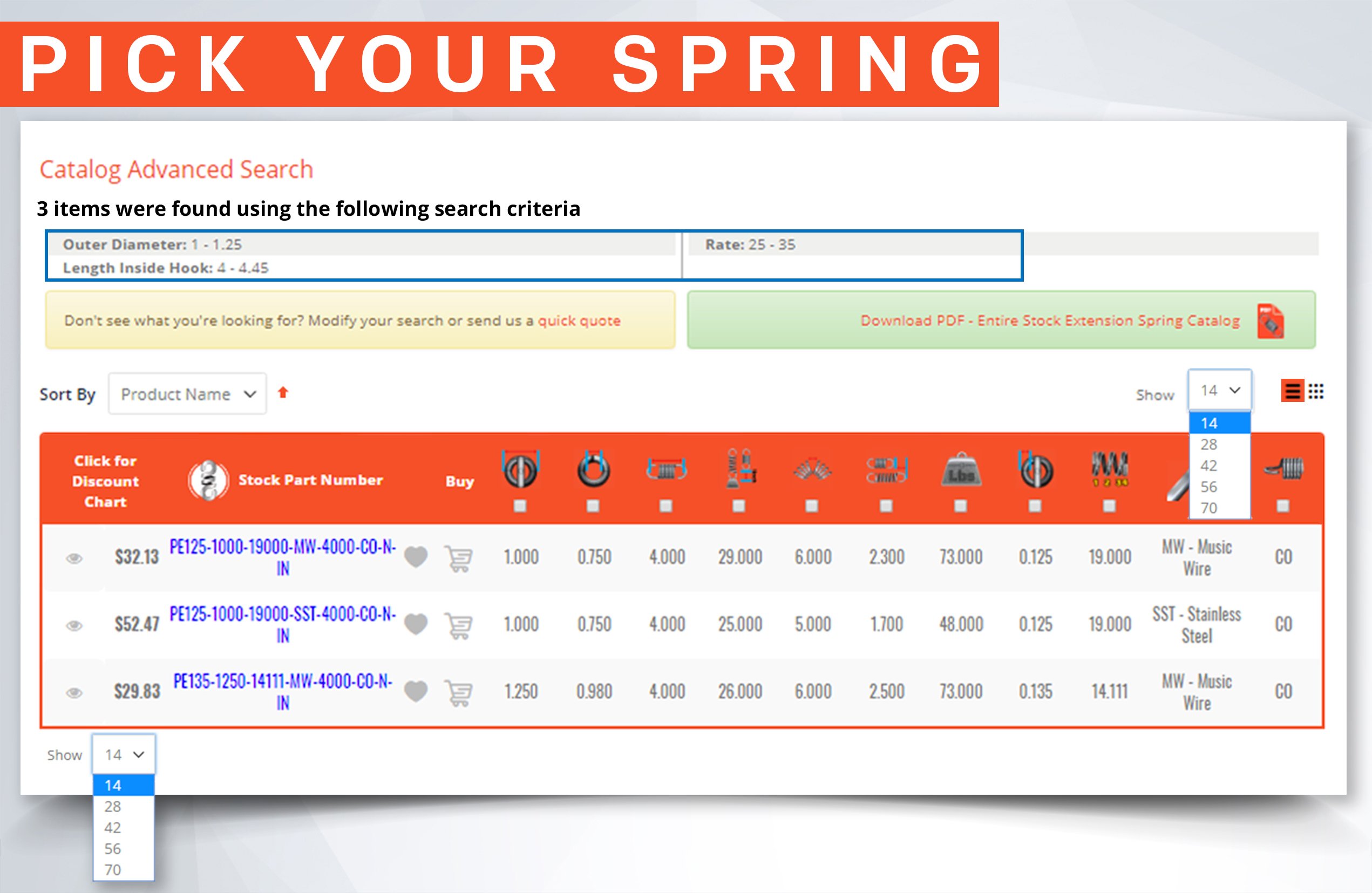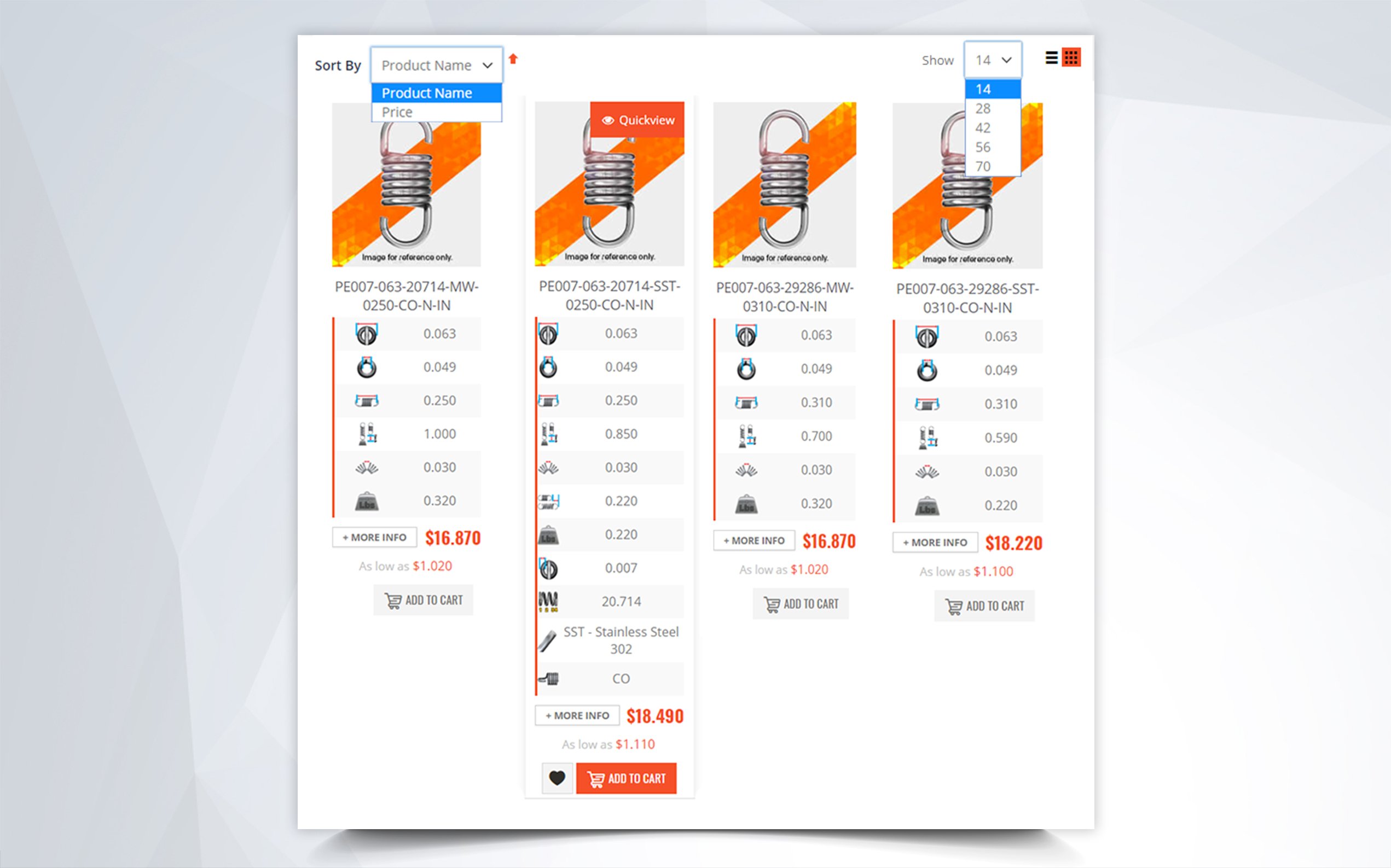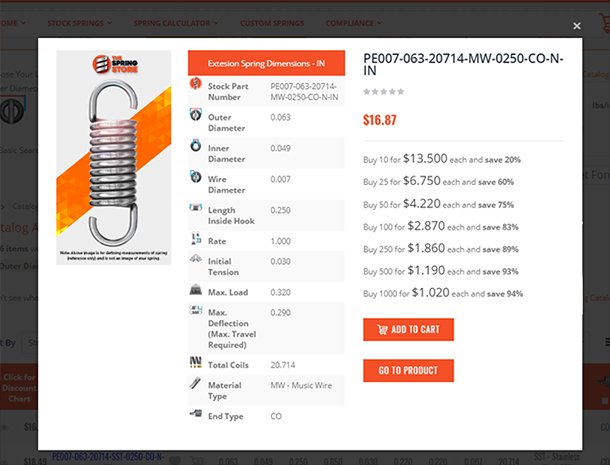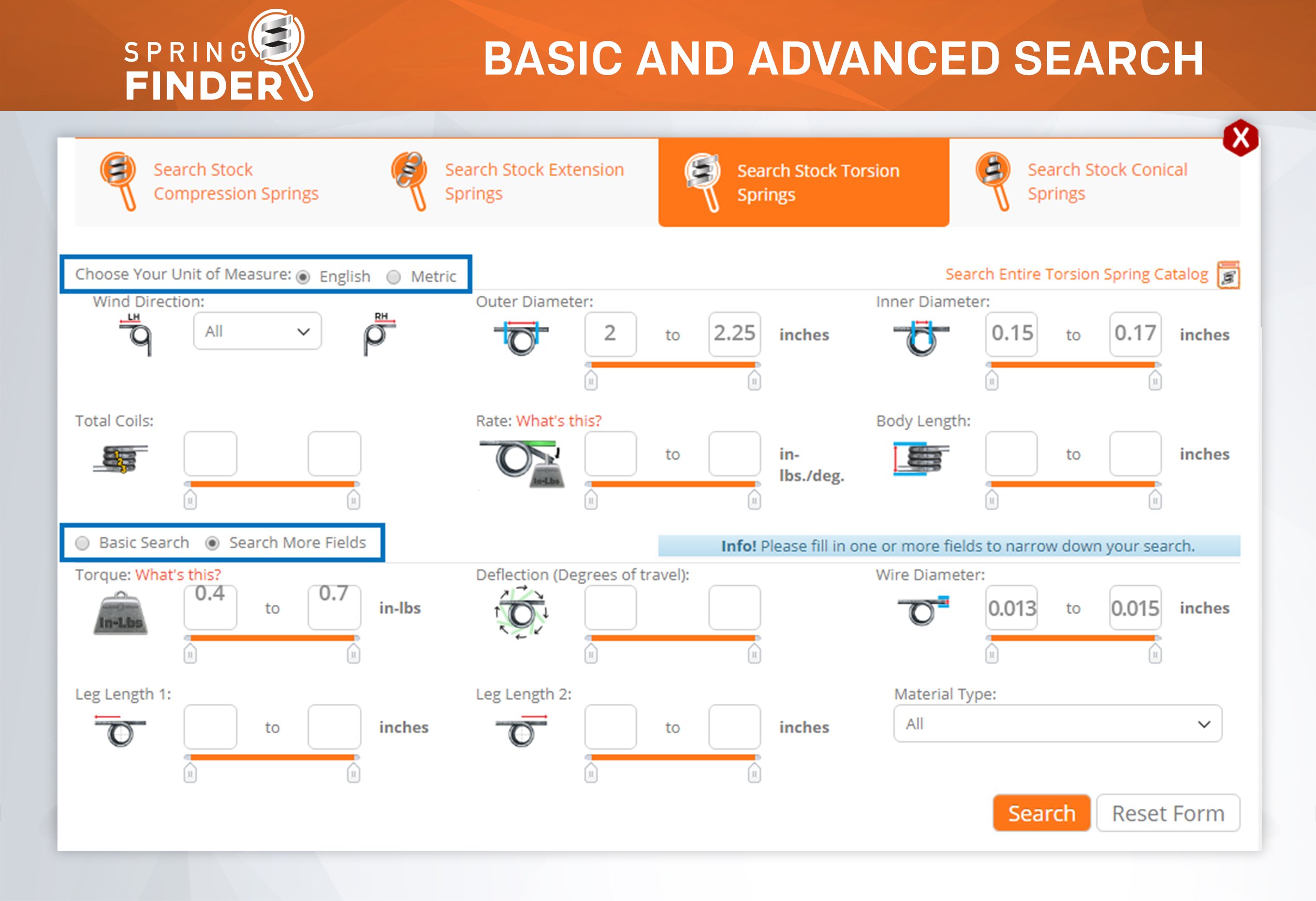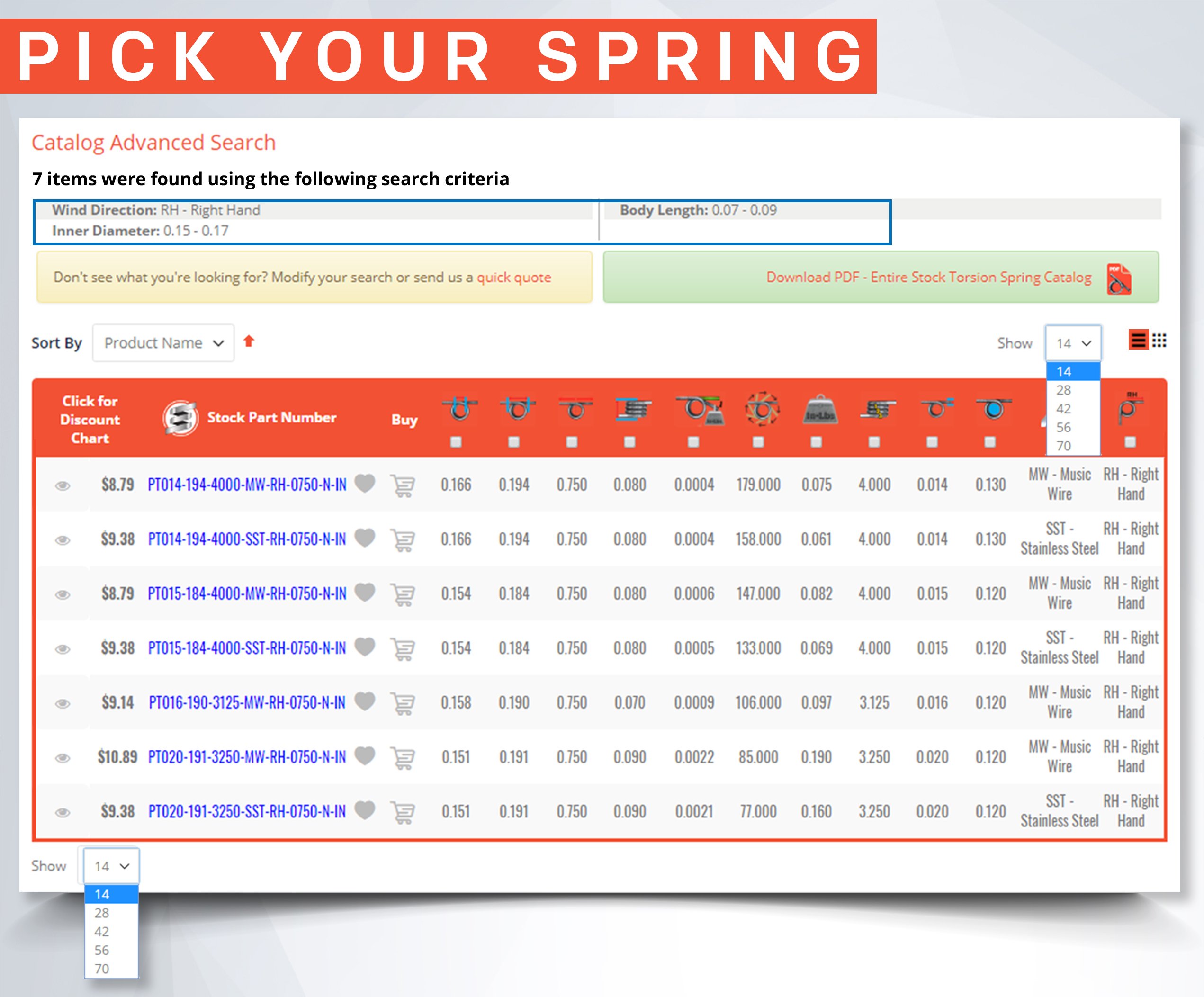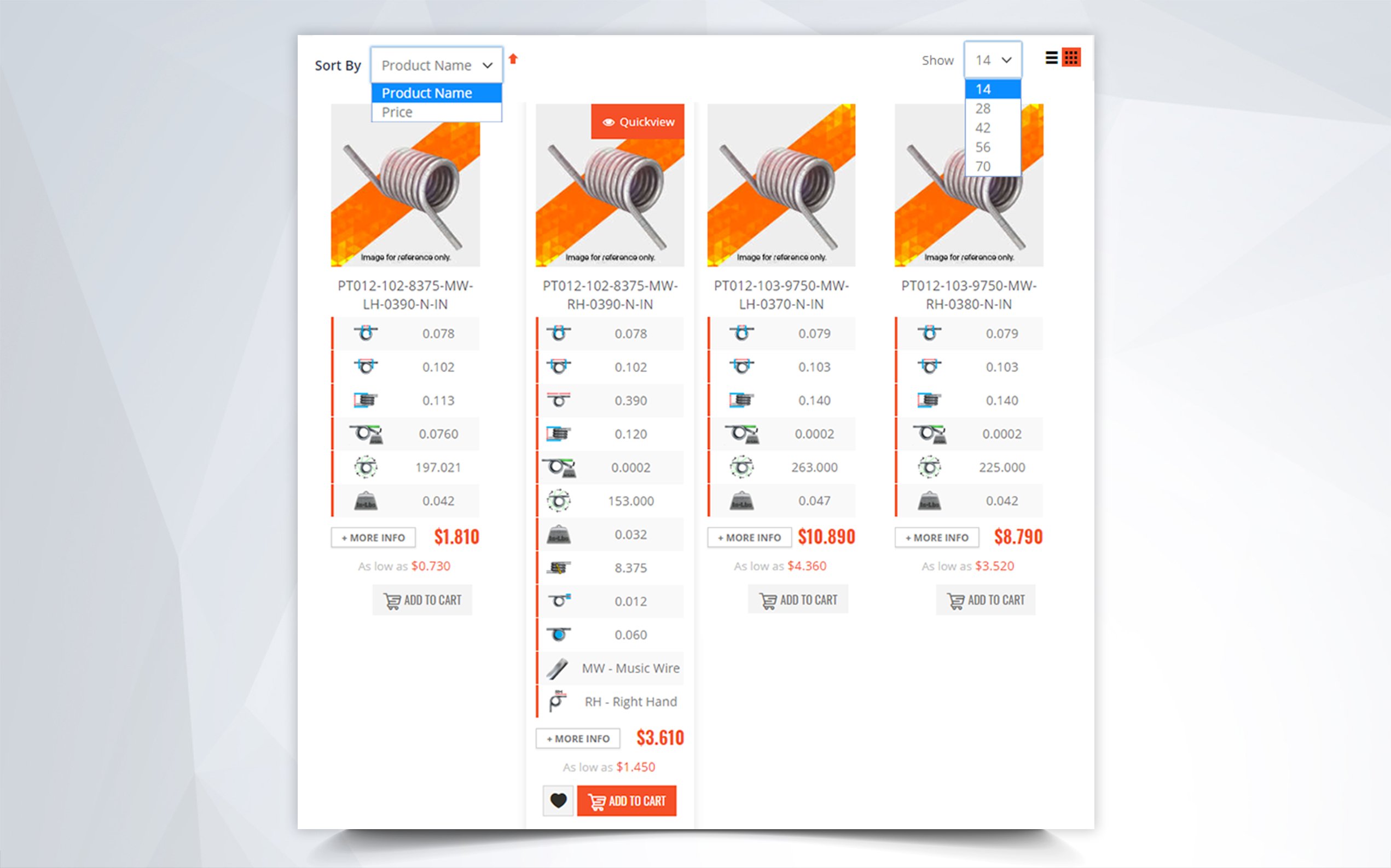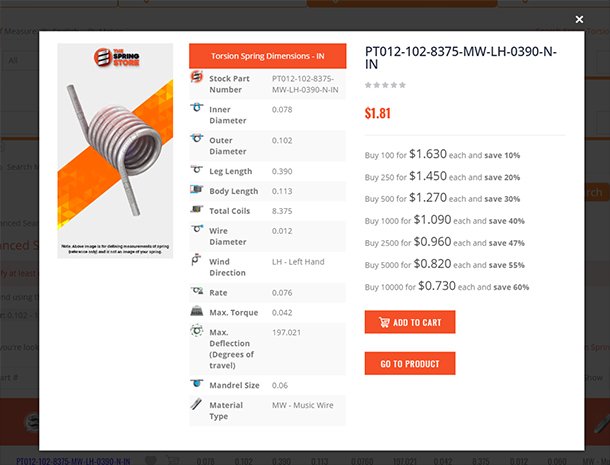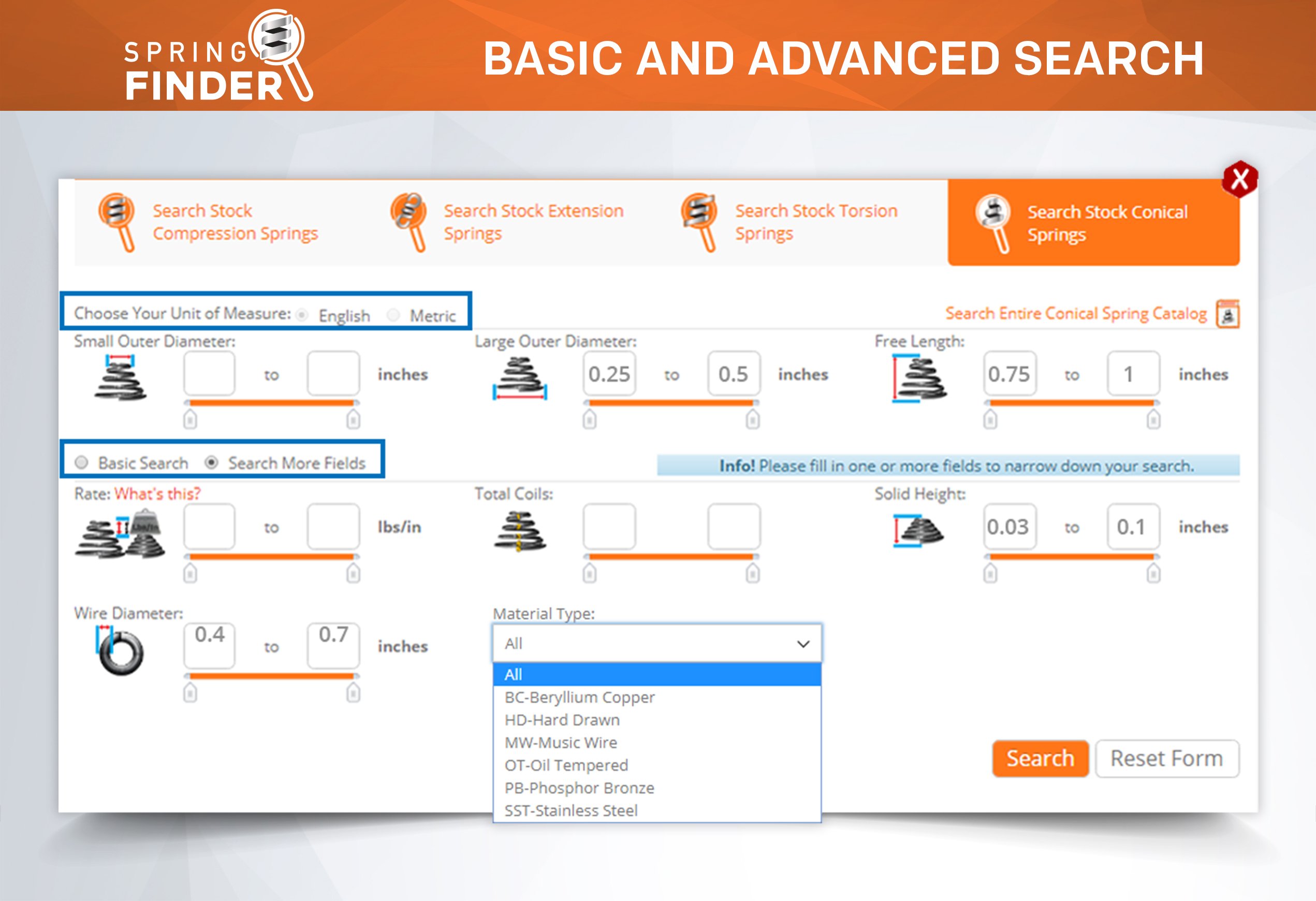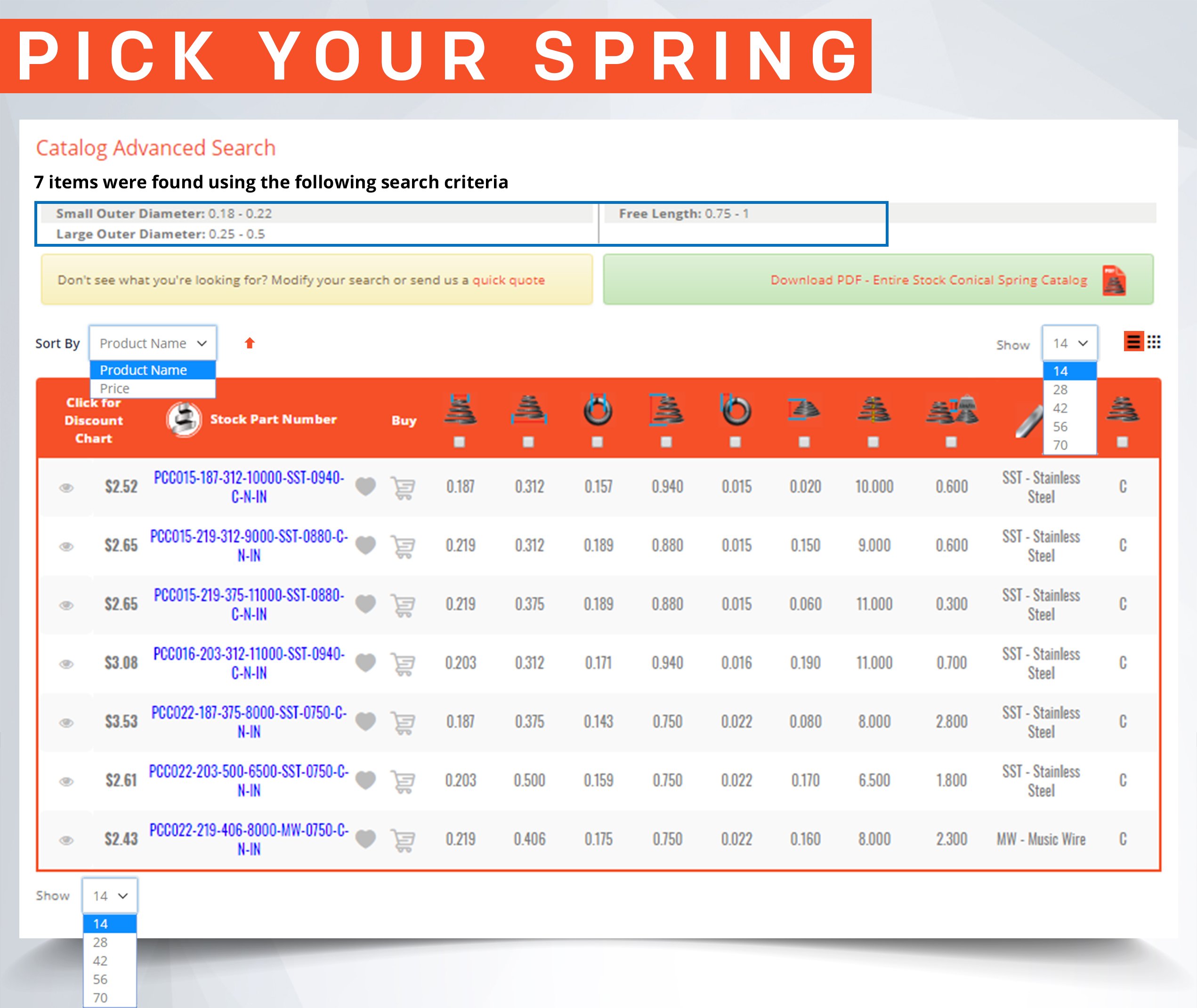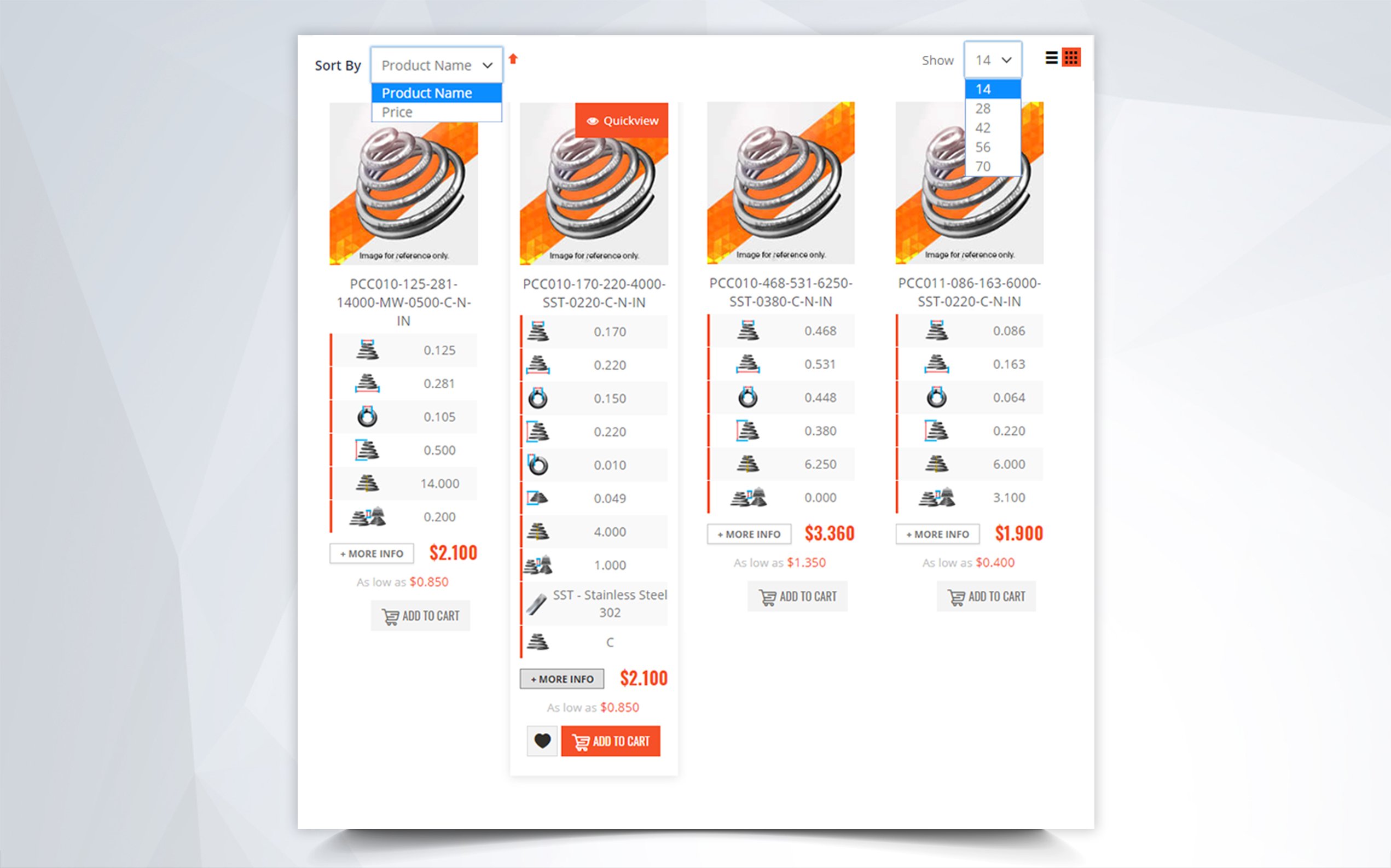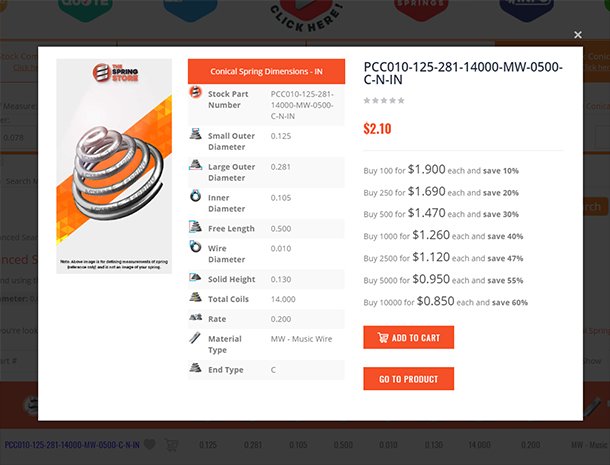Using the Conical Spring Finder Basic Search
When you search for conical springs, or any type of stock spring, it is important to make sure you know the measurements you need your spring to have. Many times you will have a spring that needs to be replaced or duplicated and therefore know you want to purchase one like it or similar but in order to do so need to know the measurements of that spring.
Having accurate dimensions of the conical stock spring you need will facilitate your search and allow you to find the closest or most similar spring in stock. It is important to consider that having a digital caliper, or even a dial one, is crucial in order to get accurate and precise measurements. The following information explains how to adequately use your caliper to take measure of the conical spring you are looking to purchase.
When trying to search for a stock spring it is important to consider that there are different dimensions and sizes of conical springs, and although conical springs are compression springs, they have different dimensions than a regular compression spring. One big difference is in the Outer diameter. A regular compression spring has a single outer diameter measurement while a conical spring has a Small Outer Diameter (SOD) and a Large Outer Diameter (LOD) both should be measured in order to complete a more defined search.

A. Measure the Small Outer Diameter (SOD):
Place the lower jaws of the caliper around the small outer diameter, as shown. Gently squeeze and roll the thumb screw closed, until the caliper's lower jaws touch both sides of the small outer diameter as shown.Then, take a reading.

B. Measure the Large Outer Diameter (LOD):
Place the lower jaws of the caliper around the large outer diameter, as shown, and gently squeeze and roll the thumb screw closed, until the caliper's lower jaws touch both sides of the large outer diameter as shown.Then, take a reading.
Once you have both these measures you should then proceed to measure the Free Length of your conical spring.

C. Measure the Free Length (FL):
Hold your spring horizontally straight, as shown. Then, insert the lower jaws of the caliper around the length of the spring, making sure to measure the entire length of the spring as in the image from end to end.
It is crucial that you do not put pressure in the spring as you take a reading. The caliper’s lower jaws should barely touch both the top and bottom of the spring, slightly touching both ends as you measure the length and take a reading. This is because any additional pressure from the caliper’s jaws on the conical spring, can compress it and provide inaccurate readings.
Once you have all three measurements you can then decide on a range to search for on the Spring Finder’s Basic Search . We recommend that for Smaller and Larger Outer diameter you use your measurements to find a range that is 5 to 15% Smaller and 5 to 15% Bigger.
So let’s say you have a spring with a small outer diameter of 0.345 and a large outer diameter of 0.465
You would want to input the following information into the spring finder range for SOD: 0.345 -15% = 0.293 for the first range and then 0.345 + 15% = 0.396 for the second.
For LOD you would do the same thing, taking your measurement of 0.465 as a reference and searching for a large outer diameter range of 15% smaller and 15% bigger. So, a range from 0.395 to 0.534
Now for Free Length, we would recommend that you search for 10 to 20% Shorter and 10 to 20% Longer. For Example if your free length is 1.150 in free length you would search for a range of: 1.150 -20% = 0.92 and 1.150 + 20% = 1.38
This is how the spring finder basic search for this conical spring would look like:

Once you click ¨search¨ you will find that it yields 7 results so you can select from and take into consideration, the material type you need, etc.






